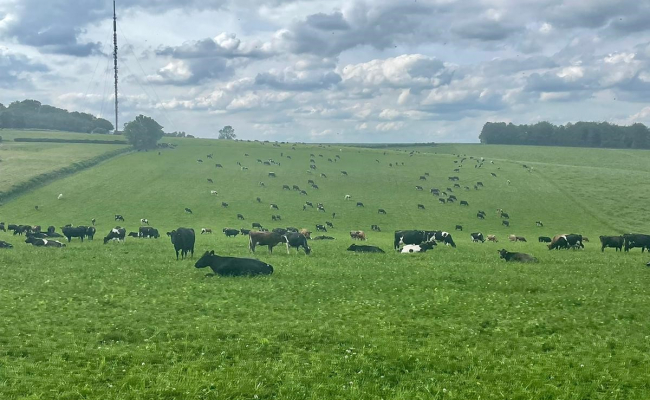It’s all about the poo
If you caught a bit of Springwatch a couple of weeks ago, you might have seen the amazing things that happen to poo. The nature series with Chris Packham showed the dung beetles, flies and other insects doing their magic with the poo. You see, cows are inefficient are capturing nutrients and only use about 20% of the energy from the food they graze. This is a positive though as it means the other 80% of the energy is pooped out and nourishes the soil instead. So, this is why manure is such an effective fertiliser and why having animals on the farm is essential for the health of the soil.
Whilst many people like to blame cattle for methane and greenhouse gas emissions, in the UK agriculture and horticulture are responsible for 9% of all UK greenhouse gases. What these numbers do not show, of course, is that the role that animals have in putting nutrients back into the soil. Focusing on methane from animals also oversimplifies the issues and the ignores the fact that organic farming focuses on soil health, tree planting and encouraging diversity which all help reduce emissions. The AHDB (Agriculture & Horticulture Development Board) encourages farmers to take depleted arable fields out of production and have them as semi-natural vegetation to capture more carbon. The simplest way to regenerate these depleted soils (which often occurs when crops are farmed year after year without being left fallow) is to not just allow it to become a grassland, but what we do, which is to plant herbal leys of and allow the cattle to graze these in rotation.
Half our farm is planted with multispecies herbal leys - a diverse seed mixture of legumes, grasses and herbs. By rotating our leys with our crops and our livestock, and timing the rotations to let the plants grow, flower and put down roots, we keep our soil varied and nutrient-dense. Our systems are reliant on using the poo from our animals to keep the soil healthy and avoiding artificial fertilisers. (Keeping plant material in the soil is similar to making compost from vegetable peelings). So, whilst poo many not be everyone’s favourite topic of conversation, its very important to us and our soil.

